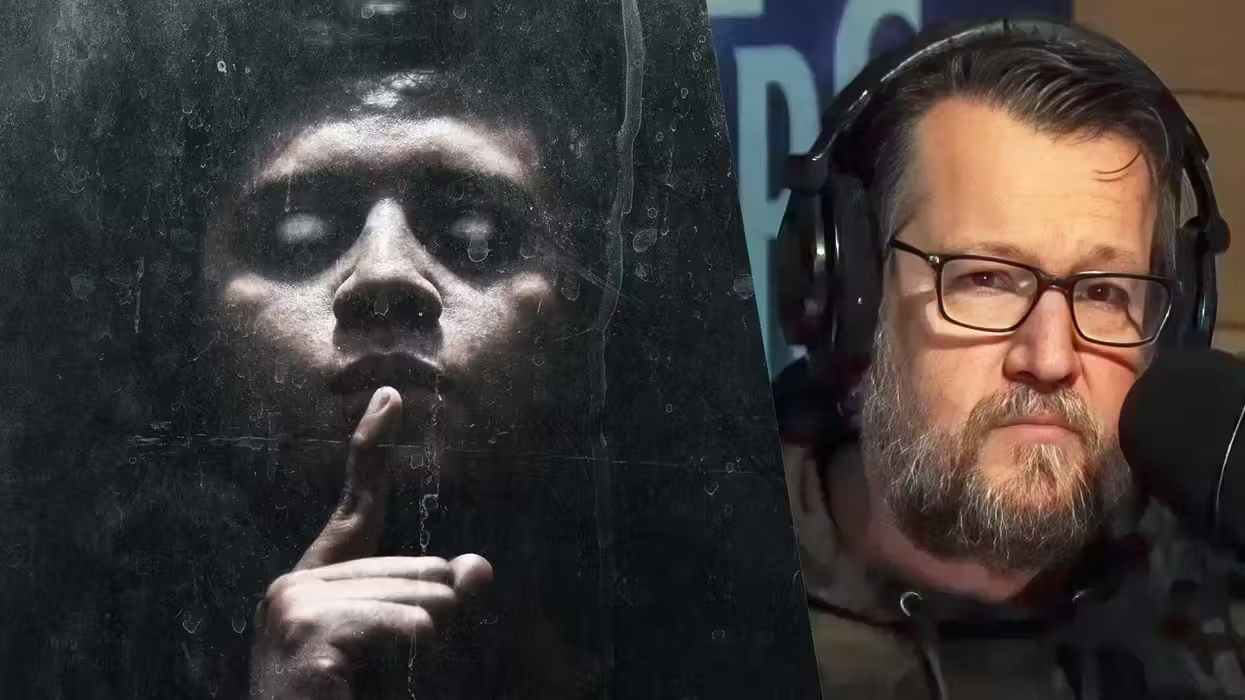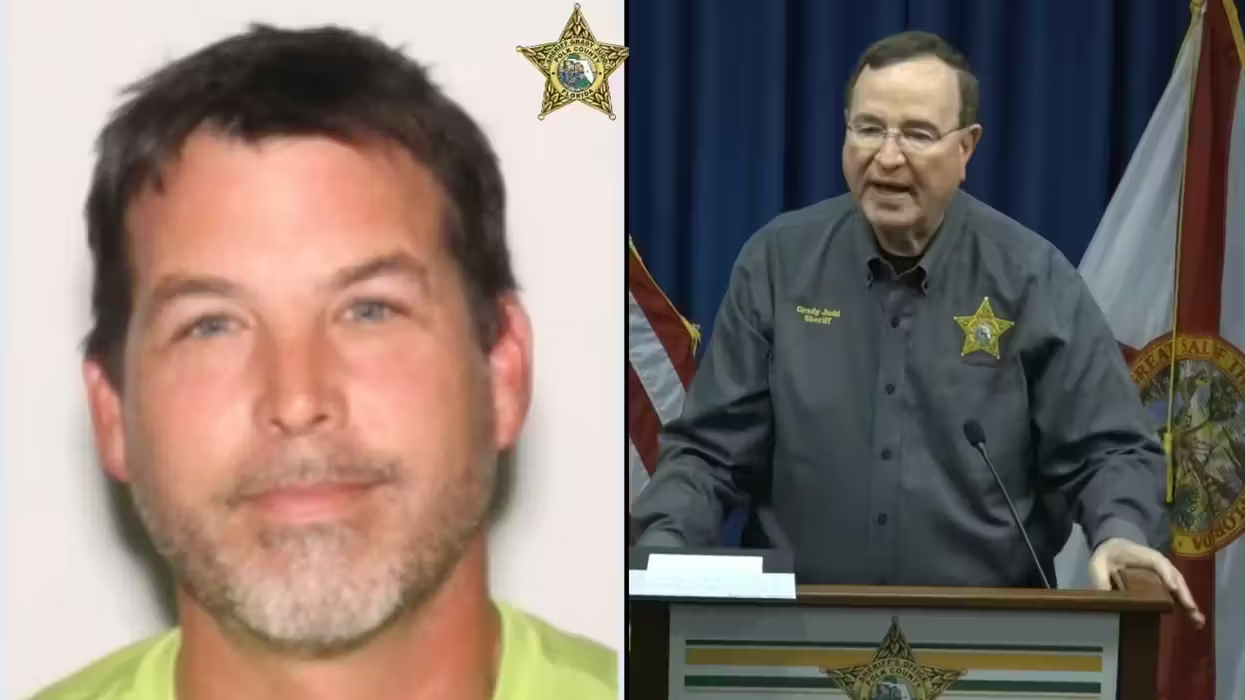
© 2025 Blaze Media LLC. All rights reserved.
4 Million Facebook Users Will Die this Year, and Now There Is a New Way to Honor Their Memory
November 22, 2013
"It didn’t feel right to post to this person’s profile suspended in mid-air and suspended in time."
This year, more than 4 million of Facebook's 1.11 billion users will die.
But what do you say on social media to those suffering a loss -- if anything at all? How to you respond to their posts on Facebook -- "like" them? What do you post if you're the one grieving?
Jono Milner had a friend pass away. His friend was on Facebook, and he wanted to publicly pay tribute to him. But he hesitated.
"I felt this pushback. It didn’t feel right to post to this person’s profile suspended in midair and suspended in time," Milner told TheBlaze.
Milner spoke with others about this feeling, learning that "we all had that tension." Perhaps you've felt it too.
He remembers seeing someone post on Facebook about their mother, “I can’t believe you’re gone.”
"There were like 16 'likes,' he said. "I get what people mean by that … but it just feels wrong."
"I thought, there's got to be a better way."
That's when Milner and others devised Sanctri, a Facebook application that launched in public beta Thursday.
 Sanctri is a new Facebook app created to give people a place where they might feel more comfortable to memorialize loved ones. (Image source: Sanctri)
Sanctri is a new Facebook app created to give people a place where they might feel more comfortable to memorialize loved ones. (Image source: Sanctri)
Sanctri is a place where Facebook users can remember the lives of a person in a context that doesn't mix it with pictures from last night's party.
Dianne Gray, considered an expert on end-of-life care and grief, lost her own son while he was a teenager after nearly a decade spent battling a debilitating disease. Gray has been involved with the making of Sanctri and will be a contributing writer and resource for the app.
For her, she believes Sancti can share her son's life and love.
"Sanctri can share that love of Austin without getting stuck in the medicalization of the end of his life," Gray, president of Elisabeth Kubler Ross Foundation, told TheBlaze. "Sanctri is a place to say 'this is someone I love still, even though he died eight years ago ... and here’s what he’s all about.'"
 Image source: Sanctri
Image source: Sanctri
Not only that, but it's a place where she said people can feel comfortable sharing their grief.
"In our society, we’re compassionate but, parenthetically, to a point," Gray said. It's very much a “don’t remind me of your child that died”-type culture at times.
"We tend to look at what's 'newest,' always looking forward in American culture," she continued.
But grief doesn't work that way.
"People out there in the big world expect that grief is going to have a finite period of time.They don’t understand that the loss of someone that you love … that loss can stay with you for the rest of your life," Gray said.
Sanctri, in addition to providing a place where people can comfortably share both grief and happy memories, will serve to connect people, said Kathy Eldon, Sanctri co-founder.
[sharequote align="center"]"...it’s widely healthy, rebranding death and allowing us to speak about those who have departed."[/sharequote]
Eldon said she's creating a page for her mom and hopes it will connect a large, international group of family and friends, who can share photos, video and memories. She's also the mother of Dan Eldon, a journalist who was stoned to death by a mob in Mogadishu, Somalia, in July 1993.
Eldon remembered the holiday season after her son's death.
"Nobody talked about him. (Sanctri) would have given me a place to put up thoughts and feelings," she said.
With three levels of privacy, Sanctri users will be able to control who can see or contribute to a memorial.
"It will allow people to share pictures no one else has, to tell a story that would have been forever lost," Milner said. "(We're) creating this interactive scrapbook."
Take a look at how Sanctri works in this video:
You might be wondering why people post anything at all about their grief on Facebook. Milner likened how people use Facebook today to how people used newspapers in the past.
"Facebook is today’s public forum," he said. "It used to be people would want to contribute news through a newspaper’s classified ad."
"Grief is a part of life, but it’s not all of life," Gray said. "Facebook, I think, is helpful and it’s about all of life. But the thing that Facebook isn’t, with our cultural norms as they are now, is safe for (users) at their most vulnerable, emotionally naked moments."
As the baby boomer population continues to age, Eldon said she thinks the conversation about death will continue to become more mainstream.
"(Sanctri is) literally bringing this subject out of the recesses of our mind," Eldon said. "I just think it’s wildly healthy, rebranding death and allowing us to speak about those who have departed."
Learn more about Sanctri on its website or try the Facebook app.
--
Featured image via Shutterstock.
[related]
Want to leave a tip?
We answer to you. Help keep our content free of advertisers and big tech censorship by leaving a tip today.
Want to join the conversation?
Already a subscriber?
more stories
Sign up for the Blaze newsletter
By signing up, you agree to our Privacy Policy and Terms of Use, and agree to receive content that may sometimes include advertisements. You may opt out at any time.
Related Content
© 2025 Blaze Media LLC. All rights reserved.
Get the stories that matter most delivered directly to your inbox.
By signing up, you agree to our Privacy Policy and Terms of Use, and agree to receive content that may sometimes include advertisements. You may opt out at any time.






